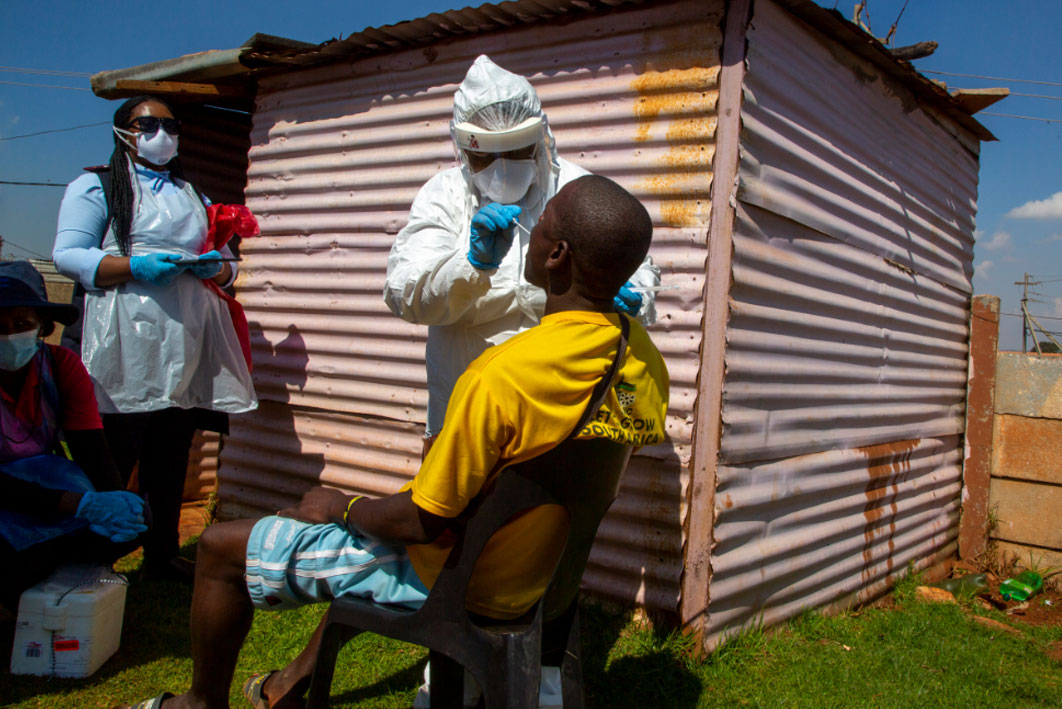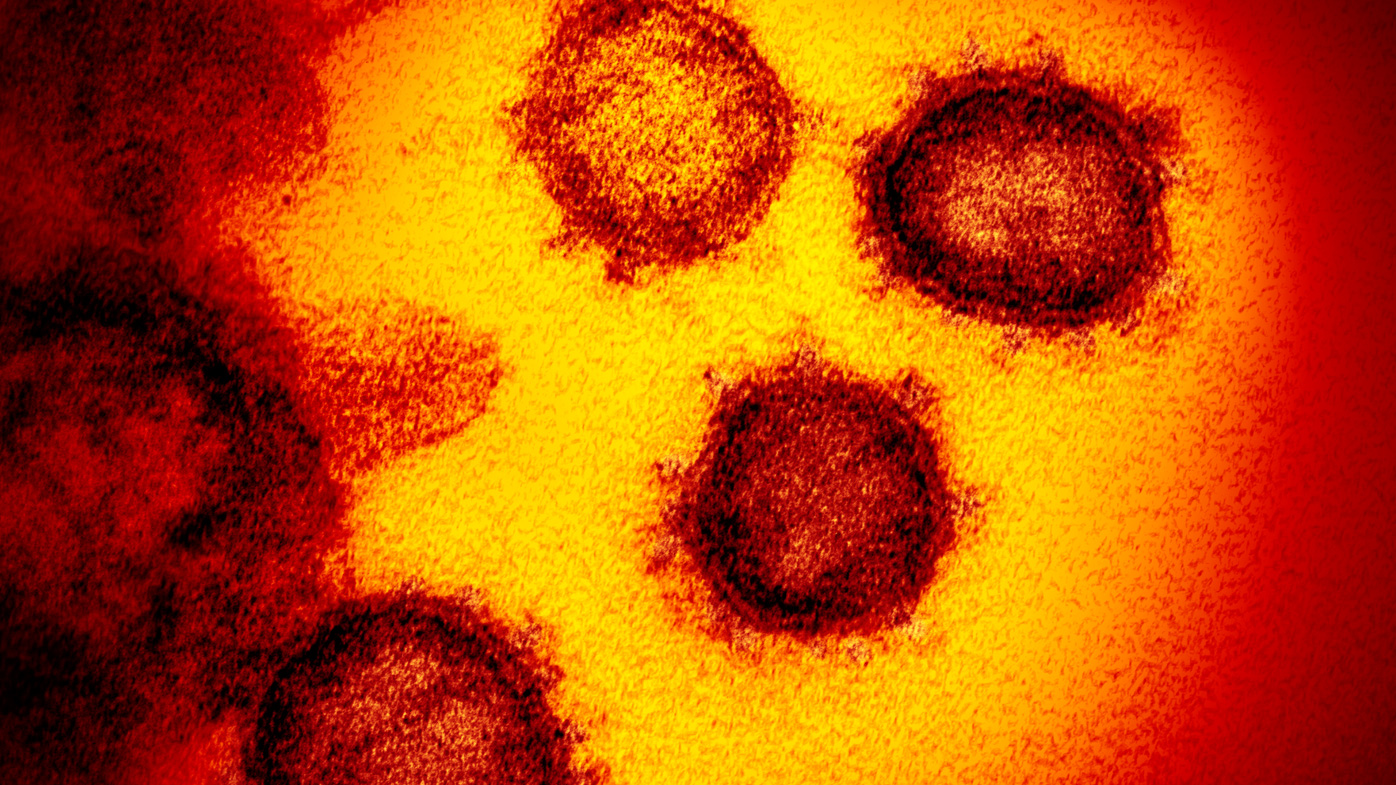A new coronavirus variant which has a "constellation" of new mutations has been detected in South Africa.
Scientists say it is a concern because of its high number of mutations and rapid spread among young people in Gauteng, the country's most populous province, Health Minister Joe Phaahla announced.
Currently identified as B.1.1.529, the new variant has also been found in Botswana and Hong Kong in travellers from South Africa, he said.
The World Health Organisation's technical working group is to meet later today to assess the new variant and may decide whether or not to give it a name from the Greek alphabet.
And the British government announced that it was banning flights from South Africa and five other southern African countries effective at noon (1200GMT) on Friday, and that anyone who had recently arrived from those countries would be asked to take a coronavirus test.

The coronavirus evolves as it spreads and many new variants, including those with worrying mutations, often just die out. Scientists monitor for possible changes that could be more transmissible or deadly, but sorting out whether new variants will have a public health impact can take time.
South Africa has seen a dramatic rise in new infections, Mr Phaahla said at an online press briefing on Thursday.
"Over the last four or five days, there has been more of an exponential rise," he said, adding that the new variant appears to be driving the spike in cases. Scientists in South Africa are working to determine what percentage of the new cases have been caused by the new variant.
READ MORE: Close contact rules for NSW schools changed
Currently identified as B.1.1.529, the new variant has also been found in Botswana and Hong Kong in travellers from South Africa, Mr Phaahla said.
The emergence of the new variant prompted the UK to place South Africa on its travel red list.
British experts believe that variant, which is rapidly spreading in South Africa, can reduce the effectiveness of vaccines to as little as 30 per cent.
UK Health Secretary Sajid Javid said there were concerns the new variant "may be more transmissible" than the dominant delta strain, and "the vaccines that we currently have may be less effective" against it.
Flights from South Africa and five other African countries to the UK will be suspended from Friday, Mr Javid said.
READ MORE: Man charged with murders of missing Victorian campers

The new variant has a "constellation of new mutations," said Tulio de Oliveira, from the Network for Genomic Surveillance in South Africa, who has tracked the spread of the delta variant in the country.
The "very high number of mutations is a concern for predicted immune evasion and transmissibility," Mr de Oliveira said.
https://twitter.com/Tuliodna/status/1463911554538160130?ref_src=twsrc%5Etfw"This new variant has many, many more mutations," including more than 30 to the spike protein that affects transmissibility, he said. "We can see that the variant is potentially spreading very fast. We do expect to start seeing pressure in the healthcare system in the next few days and weeks."
Mr de Oliveira said that a team of scientists from seven South African universities is studying the variant. They have 100 whole genomes of it and expect to have many more in the next few days, he said.
"We are concerned by the jump in evolution in this variant," he said. The one piece of good news is that it can be detected by a PCR test, he said.
READ MORE: Major changes to mask rules, QR codes once NSW hits 95 per cent vaccination rate

After a period of relatively low transmission in which South Africa recorded just over 200 new confirmed cases per day, in the past week the daily new cases rapidly increased to more than 1200 on Wednesday. On Thursday they jumped to 2465.
"This is clearly a variant that we must be very serious about," said Ravindra Gupta, professor of clinical microbiology at the University of Cambridge. "It has a high number of spike mutations that could affect transmissibility and immune response."
South Africa, with a population of 60 million, has recorded more than 2.9 million COVID-19 cases including more than 89,000 deaths.
To date, the Delta variant remains by far the most infectious and has crowded out other once-worrying variants including alpha, beta and mu. According to sequences submitted by countries worldwide to the world's biggest public database, more than 99 per cent are Delta.
With Associated Press
